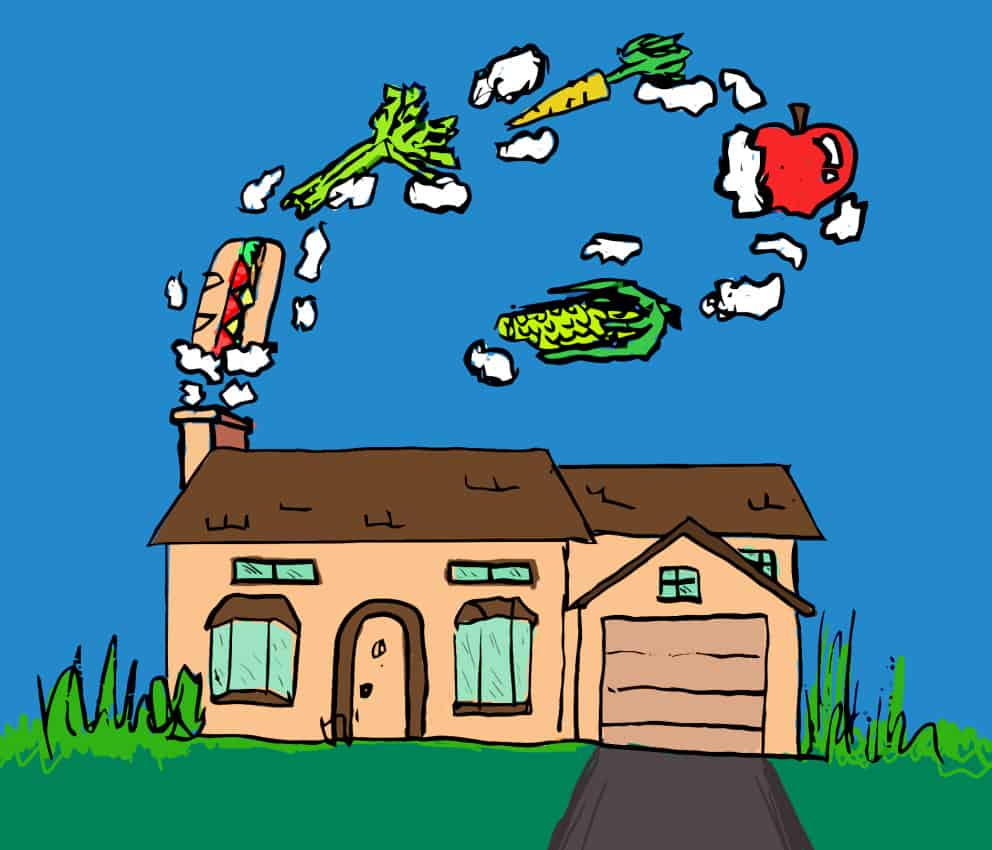With backyard chicken coops and urban beehives becoming all the rage in cities across Canada, the University of Saskatchewan Environmental and Bioresources Students Association decided to address urban food production by hosting a seminar and potluck on campus.
On Oct. 29, a variety of homemade — and in some cases, home-grown — food decked the potluck table at the cozy club office. Many of the members of EBSA and lecture attendees are also part of the Horticulture Club on campus. The club also recently made the switch to re-usable dishes to cut down on waste.
Grant Wood, assistant professor in the department of plant sciences, teaches several classes in the College of Agriculture and Bioresources and spoke to the current state and future of urban food  production.
production.
“Urban agriculture is trendy now,” Wood said, suggesting that there are ways for students to be engaged even throughout the school year. “We grow in the greenhouses. In the Horticulture Club, we have the greenhouse production in the wintertime. We are also using and processing some of the stuff we [grew earlier this year].”
According to Wood, one third of agriculture students graduated from urban high schools and that number is only going up. He adds that this interconnectivity of urban interest in rural habits is becoming increasingly common, and it adds a new perspective to how things are done.
“Urban students think differently. They see agriculture with different eyes,” Wood said.
There are several events put on by the Horticulture Club in the spring, including activities for students to build new skills such as learning how to graft trees. Wood encourages students to check out some of these unique opportunities available to them on campus.
“Join the Horticulture Club for sure. I salvaged 50-some apple trees today that I will keep over the winter,” he said. “All club members help out. It’s all about the learning.”
Wood also took the opportunity to discuss how his classes are of practical use to students and argues that the projects have a real impact on the community.
“Two or three of the students have projects or proposals for the USSU. One of them is: ‘So you’re a university student, you’ve got a backyard and you’re here for the summer? This is what you need to know about how to grow vegetables in your backyard for the first time.’ That’s the type of stuff I do. I’m very experiential.”
As the U of S participates in Mental Health Awareness Week on campus from Nov. 2-6, Wood suggests that students consider the impact of agriculture in that discussion.
“You want to feel good about yourself? Grow food,” Wood said.
He emphasized this point by referring to a female farmer working in Mongolia, pictured holding an overflowing armful of plump carrots.
“That isn’t, ‘Hey, I grew some carrots.’ That’s not what that says. That says, ‘I’m a single mom. I have a living now. I have a life. I can support my family. Look what I can do.’ That’s what that picture says,” Wood said, adding that although he is obviously projecting his own ideas onto the photo, agriculture is more than just growing food.
According to Wood, participating in agriculture has the power to make people feel better about themselves overall.
“There is so much more to food production than just food. It’s the therapy part of it.”
Moreover, Wood recognizes that students from other areas of study may take an interest in urban food production, noting that he presently teaches students from six different colleges across campus. He encourages those not studying agriculture to consider taking some classes, regardless of their degree trajectory.
“[Urban agriculture] is not a fad, it is not going away. We are going to produce food more in the city. There’s an increasing number of people interested.”
—
Image: Jeremy Britz / Graphics Editor
Leave a Reply